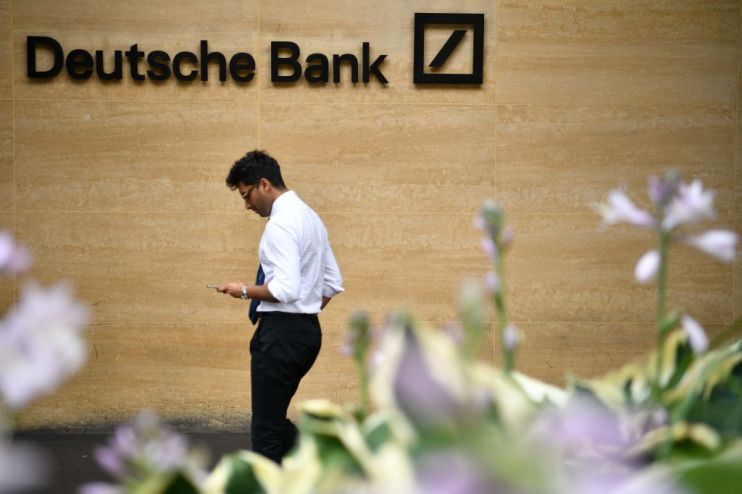Deutsche Bank: Boss says firm is finally ‘robust’ but needs to do ‘better job’ explaining investment bank

Deutsche Bank chief executive Christian Sewing has said the group has made a lot of progress on its recovery strategy, but admitted there is work to do convincing investors about the strength of the investment bank.
The Germany-based lender has undertaken a major restructuring since 2019 after years of underperformance and expects to free up some $3.2bn in capital by the end of 2025.
This strategy includes 800 global job cuts in non-client-facing senior roles.
“A transformation of such a bank is never done in three years’ time,” Sewing told the Financial Times’ Global Banking Summit on Wednesday.
“I am actually quite happy with what we have done because the most important thing is that this is now finally a bank which is robust, absolutely sound, I think from an asset quality point of view the best I have seen in the last 20 to 30 years.”
He noted that the bank’s recovery was “clearly a cost story” and reiterated his confidence in Deutsche’s cost-cutting targets. He said 2024 would see “further gradual improvement”.
Sewing said a “substantial part” of the cost savings would go to “reward the shareholders”, noting that the overall return to shareholders could be up to 50 per cent.
However, he flagged investors’ continued uncertainty over Deutsche’s investment banking division.
“We need to do a better job in the bank to explain the sustainability of the investment bank revenues. I think the market still views the investment bank in itself as a very volatile business,” Sewing said.
“Of course, it is more volatile than the corporate bank or the private bank or the asset management, but if you look into the ingredients of our investment bank, there are so many parts in it which are very predictable, very stable – which I think is not that known to the market.”
He added that 70 per cent of Deutsche’s revenues now come from the private bank, the corporate bank and asset management.
Global investment banks have struggled this year with muted deal activity and falling trading revenue, while higher interest rates prove a boon to other divisions.
Deutsche last month posted a better-than-expected eight per cent drop in third-quarter profit as higher interest rates boosted the group’s retail and corporate divisions.
In October, Deutsche completed a takeover of City broker Numis, hoping that the £410m deal would accelerate its strategy to become “the first point of contact” for financial services clients in the UK.